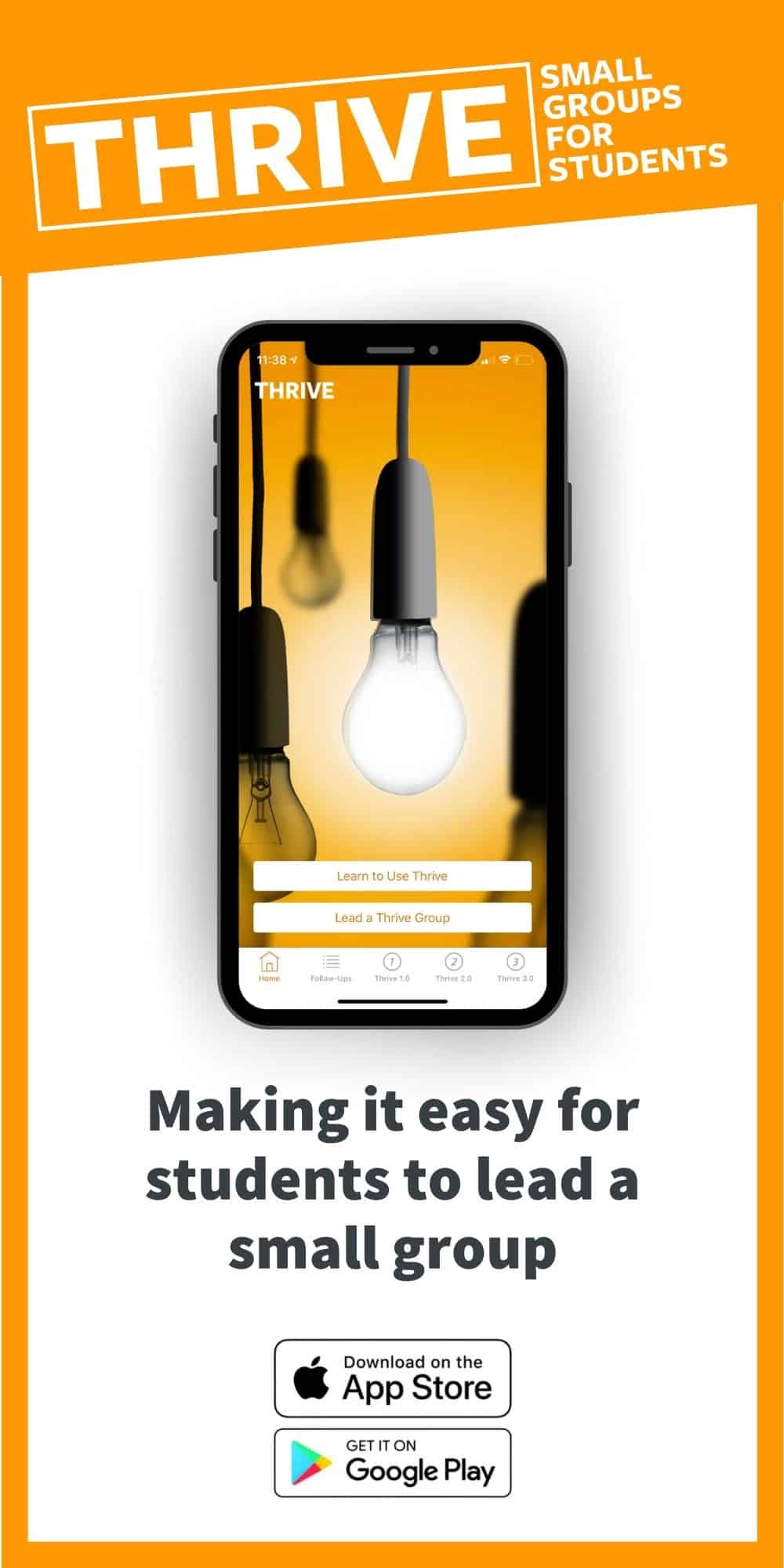As a volunteer with the high school ministry of Cru, you can make a tremendous impact on the lives of teenagers within a movement.
You can literally steer students to where they will spend eternity, so these relationships cannot be treated lightly. And at the same time, teenagers typically gravitate toward adults or authority figures who are fun, engaging, and authentic. Students won’t relate to a robot.
The relationships that you build with students carry significance. They can also have lasting consequences if not handled with care and intentionality. In light of this, here are six guiding principles to keep in mind as you develop relationships with middle and high school students.
Your relationship is not a peer-to-peer interaction. Due to differences in age, experience, maturity, and your role, you automatically enter into a relationship with a student from a position of authority and leadership. This dynamic can look like that of an older brother or sister, but it is often much more like a teacher-student or coach-student friendship.
As a leader, it is very important for you to be a positive example of maturity. You want to be authentic and relatable, but not if it means lowering your behavior to match that of the students. Teenagers are very idealistic, and can quickly become disillusioned if you come across as inconsistent or immature. It is important that we take this responsibility seriously.
With all the input you are making in the lives of students, it can be easy for these relationships to become somewhat unbalanced. You are helping and guiding them in many ways, but they also feel a need to contribute in some way to your life.
Figure out what they can do to help and teach you. Be creative. They can teach you a new sport or game, show you a new TikTok dance, help you with a hobby, master new technologies, or offer you advice. In every case, your leadership and bond is enhanced when there is balance. It helps to have give-and-take in the relationship.
You cannot expect high school students to meet all your friendship needs. You also cannot rely on your relationship with them (or ministry to them) to build your self-worth. It sounds silly, but it happens.
Students can easily become dependent on you if you are the only voice they are hearing, so you want them to hear from a variety of godly men and women. You do not ever want to be seen as controlling or smothering their spiritual or personal growth. We want to see students become independently dependent on Christ.
It’s easy for students to grow fond of you and become emotionally attached, and crushes can sometimes develop. As such, be mindful of the ways and situations in which you interact with students. Cru’s standard practice is for guys to disciple guys and ladies to disciple girls. In addition, any serious counseling should be turned over to a Cru staff member of the same gender.
Refer to Cru’s safety procedures for more on this. Be wise and above reproach in all your relationships with students. This is both for the protection of students as well as the protection of you against any false accusations of impropriety.
Suggestion: Watch the Cru Volunteer Safety video (required for all Cru volunteers and staff).
As a leader, you always want your relationships with students to be appropriate, both in practice and appearance.
When building relationships with students, authenticity and transparency are not just helpful, they are essential! These practices create opportunities for students to be open and vulnerable because they have seen this modeled. However, as a leader, you want to be careful.
Imagine your role model or mentor you admire shared too much about their struggles and brokenness with you. How would that make you feel?
When we are overly vulnerable with young people, they do not know how to handle it. It can easily make the conversation uncomfortable and bring awkwardness to the relationship. Students’ idealism and lack of experience make it hard for them to understand the more intimate, difficult aspects of adult life.
You have the freedom to be honest and real, but we should share what is most helpful for the student and their growth.
As a leader, you always want your relationships with students to be appropriate, both in practice and in appearance.
You do not want people to be suspicious of your relationship with a student. Keeping kids out too late, having late-night text conversations, exaggerated physical affection, or even being alone with a student in private can be behaviors that can be concerning. 1 Thessalonians 5:22 says to avoid all appearance of evil.
Ask yourself: “Could this decision/action cause parents, an administrator, or other students to distrust me in any way?”
If you had an involved parent when you were a teenager, did you have any significant relationship with an adult whom your parents had never met? Probably not. You were likely asked, “Where are you going?” and “Who else is going?” whenever you left your home.
Parents and guardians want to know their students’ friends, teachers, and coaches, but Cru leaders can unintentionally fly under the radar. Knowing a student’s family can enhance your ministry and relationship with the student by building trust and mutual support.
Beyond giving you an opportunity to minister to other family members, relationships with families can also expand your connections within and beyond the campus community. Parents and guardians can connect you with people who can offer financial and volunteer support to the movement.
With these principles in mind, you can create meaningful connections with teenagers that will yield spiritual fruit in the years to come!
Now that you know how to relate to students, read about how you can begin to gather students on your campus!
Next Step
Now that you know these wise guidelines for relating to students, look a little further at how you can meet and relate to students.
meet and relate to students









